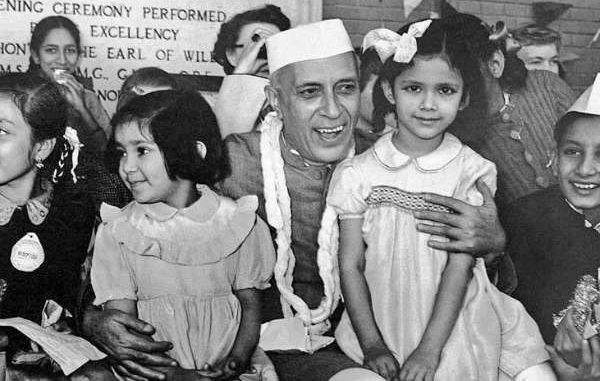
Pandit Jawaharlal Nehru was born November 14, 1889 in Allahabad, India, and died May 27, 1964 in New Delhi. The first Prime Minister of Independent India from 1947 to 1964, Nehru is credited with establishing parliamentary government and making India powerful voice among the nonaligned nations of the world. He was also one of the principal leaders of India’s independence movement in the 1930s and ’40s.
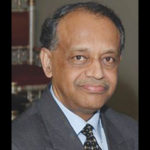
Here is an article by George Abraham on the occasion of the 131st birth anniversary of one of the best-known leaders of the modern world.- EDITOR
“Regardless of how hard some might oppose, Nehru’s vision and the democratic path he has shown the nation will continue to remain relevant, without which a modern and demo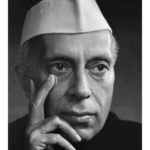 cratic India might cease to exist! To revise a famous quote to fit this narrative, ‘if India is to progress, Nehru is inescapable…we may ignore him at our own risk’!”
cratic India might cease to exist! To revise a famous quote to fit this narrative, ‘if India is to progress, Nehru is inescapable…we may ignore him at our own risk’!”
An article was published in Modern Review in Calcutta, a leading journal of the progressive politics under the title ‘Rashtrapati’ written ostensibly by one ‘Chanakya’ in November 1937. It turned out to be pseudonymous with the man who a decade later would be India’s first Prime Minister. The article describes Nehru as ‘some triumphant Caesar passing by’ who might turn dictator with ‘a little twist.’ Chanakya criticizes Nehru as unsafe for democracy, an aristocrat, and has all the makings of a dictator’.
Nehru’s own article went on to say, “For two consecutive years Jawaharlal has been President of the Congress, and in some ways, he has made himself so indispensable that there are many who suggest that he should be elected for a third term. But a greater disservice to India and even to Jawaharlal can hardly be done. By electing him a third time, we shall exalt one man at the cost of the Congress and make the people think in terms of Caesarism. We shall encourage in Jawaharlal the wrong tendencies and increase his conceit and pride. He will become convinced that only he can bear this burden or tackle India’s problems. Let us remember that, in spite of his apparent indifference to office, he has managed to hold important offices in the Congress for the last seventeen years. He must imagine that he is indispensable, and no man must be allowed to think so. India cannot afford to have him as President of the Congress for a third year in succession”.
It is quite extra-ordinary that Nehru would write a strong criticism of himself scrutinizing his own assets and liabilities from the vantage point of the nation’s best interests. He has written the article after his election as the President of the Indian National Congress for the third time. Obviously, he was worried that his dominance in Indian politics would be perceived as the dictatorship of Roman Emperor Julius Caesar, who ran his Empire with a cult of personality. By writing this piece, Nehru was highlighting the importance of checks and balances in the accountability of those who hold power.
Jawaharlal Nehru, the prime minister of India from 1947-1964, was a man on a mission. He was born into a feudalistic and caste-driven system that he wanted to transform, promoting education for all as a way out of the status quo. He felt strong as well that an educated nation is critical to an independent India. In his book, An Autobiography, he tells the world that he wanted to accomplish more, that he did not bring India far enough, but again, he may be expressing disappointment instead of not necessarily indulging in self-pity.
As we are celebrating the 131st birth anniversary of Jawaharlal Nehru on November 14, 2020, we are still in awe as we recollect his contribution, not only towards gaining India’s independence but also for laying a strong foundation of a pluralistic and forward-looking India. Nehru brought together exceptional people of differing ideologies such as B. R. Ambedkar, S.P. Mookerjee, John Mathai, C.H. Bhabha, and Shanmukham Chetty to be reflective of India’s secular and multi-faceted character in the Constituent Assembly. The Congress Party, under the leadership of Nehru, delivered on the promise that the constitution they were about to create would reflect the aspirations of the people. The constitution of India is amongst the largest in the world, with 395 Articles and 9 Schedules. The preamble spells out the basic philosophy and the solemn resolve of India’s people to secure justice, liberty, equality, and fraternity for all its citizens. What Nehru accomplished through this document with significant help from Ambedkar also is part of his vision to empower marginalized sections of the society. Nehru was a strong proponent of self-reliance, clearly recognizing that underdevelopment was the result of a lack of technological progress. Consequently, a new Industrial policy was enacted to develop key industries. While independent India was in its infancy, he identified the production of power and steel for self-sufficiency and planning. In collaboration with other countries, India built steel plants in Rourkela, Bhilai, and Durgapur. Dam projects were undertaken in various places to produce hydro-electric power, including the flagship Dam at Bhakra Nangal. The first Oil Refinery was inaugurated in Noonmati in 1962 as another leap towards industrialization. Nehru called them ‘the temples of Modern India.’
Nehru was determined to foster a ‘scientific temper’ as he provided leadership in establishing many new Engineering Institutes, the most important being the Indian Institute of Technology, 5 of which were started between 1957 and 1964. His farsightedness is also evident in granting deemed university status to the Indian Institute of Science in Bengaluru, setting up the Council of Scientific and Industrial Research, and the Defense Research and Development Organization, and laying the foundation stone for the Tata Institute of Fundamental Research. Nehru’s own words state that these would become visible symbols of building up the new India and providing life and sustenance to our people’. Nehru recognized the importance of education as a tool for empowerment and established University Education Commission under the Chairmanship of Dr. S. Radhakrishnan and the Secondary Education Commission under the Chairmanship of Dr. A.L. Mudaliar. The Indian Council of Cultural Relations was also established under Maulana Azad to promote India’s external cultural relations policies.
Soon after independence, India embarked upon a Nuclear Program aimed at developing its nuclear capacity for peaceful purposes. As we know by now, Dr. Homi Bhabha’s pioneering work in this regard is widely acclaimed in enhancing India’s capabilities in that area. Dr. Vikram Sarabhai, the Indian Space program’s father, helped establish the Indian Space research Organization (ISRO).
Unfortunately, there are forces hard at work today, undoing the great legacy of Nehru. Among the reflective NRIs, especially those who were beneficiaries of the valuable education at IITs and IIMs, nevertheless spending their time on the ‘Net denouncing Nehru and downplaying the accomplishment of the successive Congress Governments, an introspection is very much in order. Regardless of how hard some might oppose, Nehru’s vision and the democratic path he has shown the nation will continue to remain relevant, without which a modern and democratic India might cease to exist! To revise a famous quote to fit this narrative, ‘if India is to progress, Nehru is inescapable…we may ignore him at our own risk’!
(The author is a former Chief Technology Officer at the United Nations and the Vice-Chairman of the Indian Overseas Congress, USA)



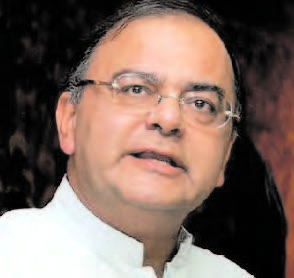
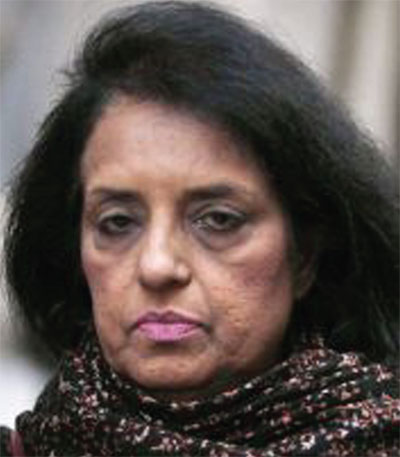
Be the first to comment